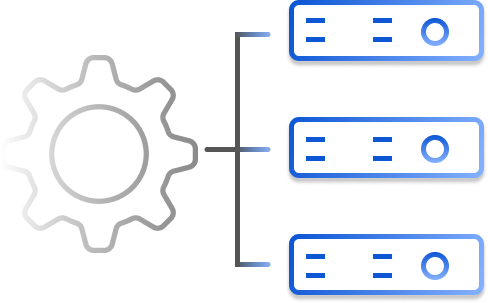Public Key Infrastructure Services
Our Public Key Infrastructure (PKI) services help you build a strong, resilient, and secure foundation for your organization, ensuring peace of mind with top-notch protection and seamless compliance every step of the way.

Trusted By
Benefits Of Our Service
Stronger PKI Infrastructure
Improve your PKI health with a strategy that boosts security, efficiency, and long-term reliability.
Risk Protection
Safeguard your networks, services, and data through encryption and digital signatures, ensuring authorized access and maintaining data integrity.
Continuous Business Operations
Ensure smooth operations by filling security gaps and strengthening disaster recovery readiness, minimizing downtime, and maximizing readiness.
Cost-Effective Security
Reduce financial risks with seamless, downtime-free PKI management and avoid costly security breaches.
Expert Support
Get the guidance you need from PKI experts to streamline operations and tackle security gaps.
Our Service
Catalogue
PKI Assessment
Assess your current PKI setup with our comprehensive review, identifying gaps and ensuring alignment with best security practices.
Learn More
PKI Design/Implementation
Build a tailored PKI infrastructure that enhances security, scalability, and operational efficiency with expert design and seamless implementation.
Learn MorePKI CP/CPS Development
Create robust Certificate Policies (CP) and Certification Practice Statements (CPS) to ensure compliance and consistency in your PKI operations.
Learn More
PKI Support Services
Get ongoing, proactive support from our experts, ensuring smooth operations, quick issue resolution, and minimal disruption to your PKI.
Learn MoreWindows Hello for Business Implementation
Deploy secure, passwordless authentication with Windows Hello for Business, boosting security and user convenience across your organization
Learn MoreMicrosoft PKI Intune Implementation
Leverage Microsoft Intune to simplify mobile device management, enhance security, and ensure compliance with a seamless deployment.
Learn MoreArea of Focus
Governance Oversight
Establish clear PKI ownership, responsibilities, and policies to ensure strong governance and accountability.
Architecture Design
Develop a scalable and secure PKI architecture tailored to business needs and future-state readiness.
Operations Optimization
Streamline PKI operations with defined processes, automation, and stakeholder alignment for consistent execution.
Risk & Compliance
Monitor and address regulatory gaps, enforce security controls, and maintain audit-readiness at all times.
Lifecycle Management
Automate certificate issuance, renewal, and revocation to minimize outages and operational disruptions.
Disaster Readiness
Ensure high availability and disaster recovery with resilient failover systems and documented recovery plans.
Stakeholder Discovery
Gather detailed inputs from stakeholders to understand the current state and define a precise service scope.
Strategic Recommendations
Deliver expert-backed insights to enhance security, reduce costs, and build a future-proof PKI.
Business Continuity
Support uninterrupted operations with secure PKI planning, training, and proactive recovery strategies.
How Encryption Consulting Helps?
- Trusted Root Security
- Flawless PKI Hygiene
- Future-Ready Architecture
- Operational Cost Control
- Continuous Compliance Assurance
-
See More
Trusted Root Security
-
Root CA keys are secured using layered defenses and best-in-class HSM.
-
Key ceremonies follow strict regulatory protocols and are fully documented for audit and recovery readiness.
-
Access to root and subordinate CAs is tightly controlled to prevent misuse and unauthorized issuance.
-
FIPS 140-2 Level 3 HSMs are integrated to guarantee hardware-enforced private key protection.
-
Outdated cryptographic settings and vulnerable algorithms are proactively identified and eliminated.

Flawless PKI Hygiene
-
Misconfigurations and security loopholes are identified through deep architectural assessments.
-
Unused, rogue, or expired certificates are flagged and removed to prevent exploit pathways.
-
Documentation of key processes ensures audit readiness and operational clarity.
-
Certificate lifecycles are restructured for visibility, policy enforcement, and expiration control.
-
Critical flaws in configuration and governance are resolved to strengthen your PKI foundation.

Future-Ready Architecture
-
Minimized long-term vendor lock-in to retain flexibility and negotiation leverage.
-
Scalability and integration with cloud and IoT are prioritized in the architecture roadmap.
-
System modernization ensures compatibility with industry evolution and innovation trends.
-
Infrastructure is prepared for advanced tech adoption like blockchain and post-quantum crypto.
-
A future-state strategy is defined to align PKI capabilities with business expansion plans.

Operational Cost Control
-
Manual errors and renewal failures are prevented through streamlined certificate automation.
-
Redundant certificate authorities and unnecessary licensing expenses are identified and eliminated.
-
External PKI expertise reduces pressure on internal resources and lowers operating costs.
-
Compliance efforts are accelerated with structured, simplified audit workflows.
-
Proactive monitoring catches inefficiencies before they translate into business disruption.

Continuous Compliance Assurance
-
PKI configurations are benchmarked against NIST, PCI-DSS, ISO 27001, and other frameworks.
-
Detailed gap analyses support rapid remediation of non-compliant areas.
-
System documentation and controls are tailored to meet audit expectations with confidence.
-
Misalignments with evolving security mandates are corrected before they pose a risk.
-
Governance models are refined to meet current and future regulatory expectations.

Discover Our
Latest Resources
- Reports
- White Papers
- Podcast
Global Encryption Trends 2025 Report
Explore the insights and trusted expertise of over 5,233 experts
Spanning multiple geographies and industry sectors across the globe for the latest insights.
Read more
Certificate Lifecycle Maturity Model
Discover the structured framework to enhance certificate management
Enhance automation, improve resilience, and achieve crypto agility with our white paper.
Read more
Discover Our Bi-Weekly Podcast: The Encryption Edge
Explore the real-world applications of cryptography, tools, and trends shaping the industry.
Bridging the gap between technical depth and practical application to decode the complexities of modern cryptography.
Listen Now



